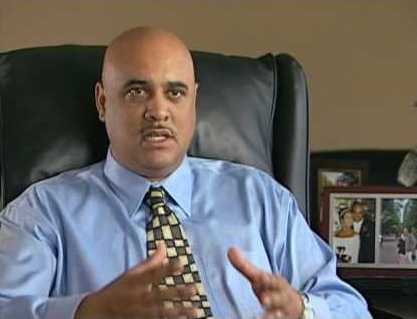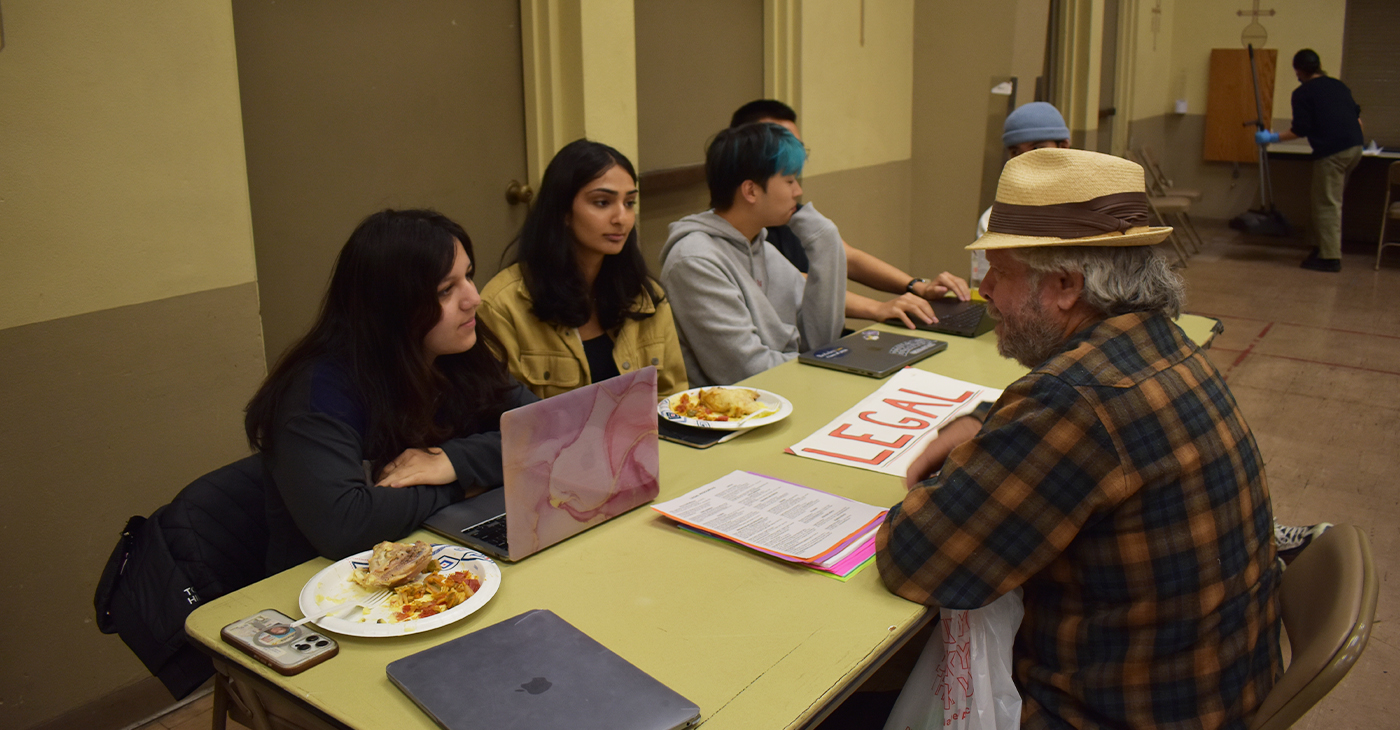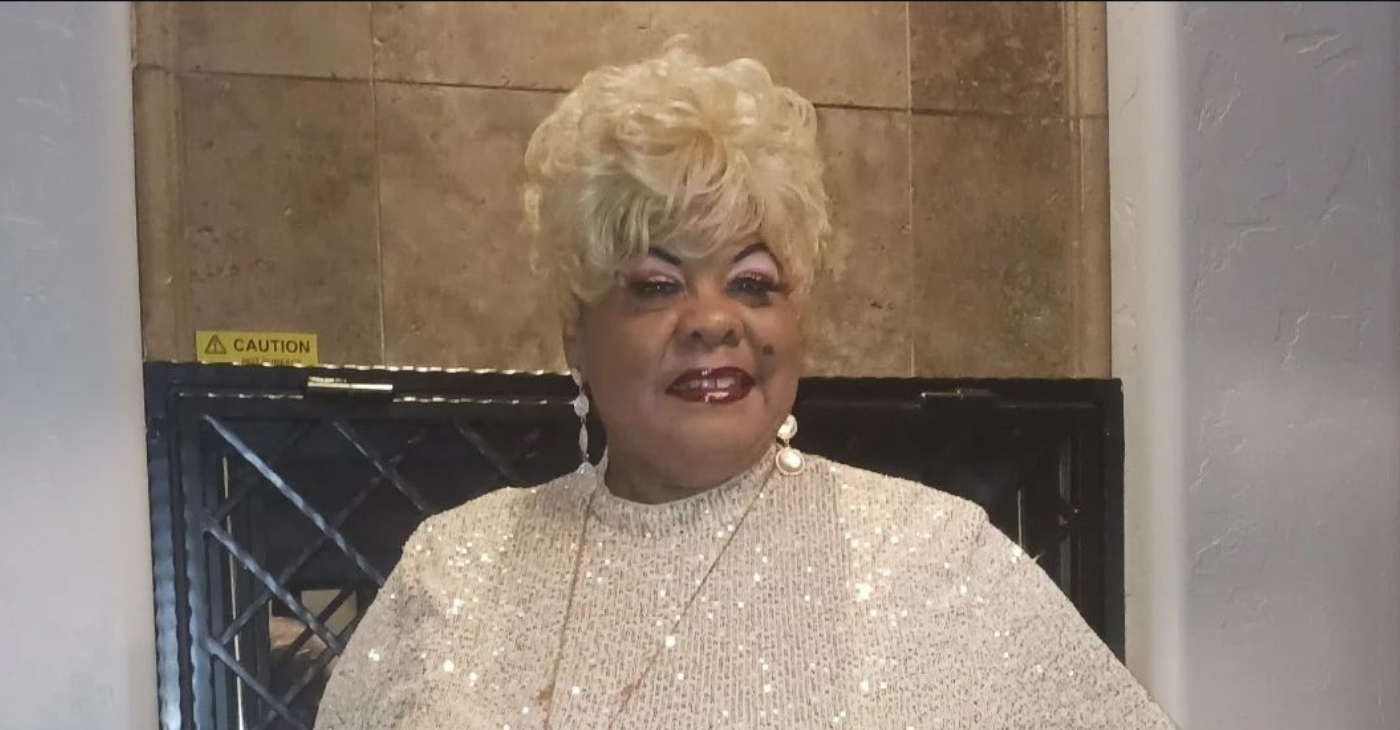Berkeley
CA Public Health Department Terminates Contract of AIDS/HIV Program

By Manny Otiko, California Black Media
Questions are being raised about the California Department of Public Health (CDPH)’s management of the AIDS Drug Assistance Program (ADAP), which provides assistance to AIDS/HIV patients who are uninsured or underinsured enabling them to have access to life-saving medication.
The program serves about 30,000 Californians.
According to a CDPH press release, the agency decided to terminate the contract with A.J. Boggs to oversee ADAP.
California Black Media first reported on CDPH’s decision to award the contract to manage ADAP to A.J. Boggs last summer. The contract had been served for several years by Ramsell Corp., a Black-owned Oakland firm.
But the contract was awarded to A.J. Boggs, an out-of-state company. The contract lasted less than a year and was terminated effective March 31.
According to CDPH, the contract was terminated for “breach of contract.” The agency also cited reasons such as “failure to provide critical information,” and an inability to “provide enrollment workers and clients access to the enrollment portals.”
According to a report in the San Francisco Chronicle, patients also complained of having trouble enrolling in the program. Caseworkers said the enrollment process went from about 30 minutes to more than three hours.
Eventually, complaints reached elected officials. In December, State Sen. Scott D. Wiener (D-San Francisco,) wrote a critical letter to CDPH demanding action.
“I am alarmed to learn about significant problems that have resulted from the transition to three new contractors as well of the implementation of a new eligibility and enrollment system,” said Wiener in the letter.
Eric Flowers, president, and CEO of Ramsell Corp. said he wasn’t surprised that the previous company had issues, but he was surprised at how short the contract lasted.
He said the decision to award the contract to A.J. Boggs was strange, especially considering his company’s long-standing relationship with CDHP.
“We have been doing it (servicing ADAP) for 19 years,” he said.
According to Flowers, there were problems with A.J. Boggs during the bidding process. He said they appeared not to have certain systems in place during the bidding process, but they were still awarded the contract.
The winning bid was also $9 million more than Ramsell’s bid. Flowers said the bidding process was so problematic; he requested it to be started over again, but the department did not do that.
However, CDPH officials stated that they needed to continue with the contract to ensure uninterrupted service. Patients noticed the difference with the new provider. One patient described the new process as “a nightmare.”
“They (CDPH) took someone they knew that was not qualified,” he said.
However, Flowers said that his company is still open to taking over the ADAP program.
“My concern has always been about making sure the program was reliable and stable,” said Flowers.
Aubry Stone, president of the California Black Chamber of Commerce and board member of the Department of General Services’ Small Business Advisory Council, says CDPH’s handling of ADAP needs further investigation.
Activism
A Student-Run Group Provides Critical Support Services to Underserved Residents
Those visiting The Suitcase Clinic can get legal advice, sign up for food assistance, receive housing resources, get medical help, or enjoy a hot, fresh meal. They can also get haircuts and foot washes from the student volunteers. Nilo Golchini, executive director of the clinic, said one of the goals for most of the students working there is helping bridge the gap of trust that exists between many unhoused people and the healthcare and social welfare systems.

Part One
By Magaly Muñoz
Every Tuesday evening, the dining hall of First Presbyterian Church fills up with dozens of people eating, laughing and moving from table to table, receiving much-needed services from UC Berkeley students – just a few blocks away from the university’s campus.
Individuals seeking support services can be found in this multi-stationed room on the south end of the church talking to law students, student case managers, or receiving medical attention in a corner by healthcare professionals.
This weekly event is hosted by Cal students through a volunteer-run program called The Suitcase Clinic.
The clinic, founded in 1989, was intended to offer free resources to underserved communities in Berkeley and surrounding cities. The majority of the clinic’s clientele are unhoused or low-income people looking for extra support.
Those visiting the clinic can get legal advice, sign up for food assistance, receive housing resources, get medical help, or enjoy a hot, fresh meal. They can also get haircuts and foot washes from the student volunteers.
Nilo Golchini, executive director of the clinic, said one of the goals for most of the students working there is helping bridge the gap of trust that exists between many unhoused people and the healthcare and social welfare systems.
During their tenure in the program, many of the students say they become strong advocates for homelessness rights.

Visitors of the Suitcase Clinic can receive haircuts and foot washing by student volunteers every Tuesday evening. Photo by Magaly Muñoz.
“We’re also standing in solidarity with them. So, it’s not saying, ‘I’m going to help you, but I’m also going to stand with you,’” Golchini said.
Student volunteers get extensive training prior to working directly with clients. Those interested have to take a semester-long class to become versed in areas such as outreach, intersectionality, how to interact with unhoused people, how to sign people up for social services. and more.
Volunteers then get to pick from three different clinics: General, Women’s, or Youth and LGBTQ+.
The General Clinic is the most popular among visiting residents, while Women’s and Youth/LQBTQ+ have more specialized services for attendees.
The Women’s Clinic has many of the similar services to General, but also includes nail painting, childcare, and massages.
The Youth and LGBTQ+ Clinic offers a safe space for young people navigating living on the streets, with services that include housing referrals, wellness and recreation classes and employment resources.
Golchini explained that it’s important for them to keep these clinics separate because the different demographics experience poverty and homelessness differently than those who visit the General Clinic.

Suitcase Clinic student workers posing for a photo with a frequent clinic attendee. The Clinic is open to Berkeley unhoused and low-income residents who need medical or legal service, or a hot meal. Photo by Magaly Muñoz.
“We’re able to provide spaces where people can come in and feel safe and not feel like they’re constantly worried that something’s going to happen to them,” she said.
An outreach team also visits encampments every other Saturday in the Berkeley area to provide hygiene kits and encourage people to visit the in-person clinic, if possible.
However, Golchini said engagement has been low for some time now due to a recent decision by the U.S. Supreme Court that allows cities to ban and cite people for sleeping on the streets.
She said a lot of their clientele got displaced to other cities over time, making it difficult to stay in contact with the services the Clinic was providing for them.
But that hasn’t slowed down the students at the Clinic, if anything, it has pushed them to do more for the community they serve.
Arts and Culture
Promise Marks Performs Songs of Etta James in One-Woman Show, “A Sunday Kind of Love” at the Black Repertory Theater in Berkeley
“The (show) is a fictional story about a character named Etta, aka Lady Peaches,” said Marks. “She falls in love with Johnny Rhythm, leader of the Rhythm Players Band and headliners of Madam G’s Glitta Lounge.” Marks channeled the essence of Etta James, singing favorites such as “Sugar on the Floor” and “At Last.”

Special to the Post
It was “A Sunday Kind of Love” at the Black Repertory Group Theater in Berkeley on Saturday night, Dec. 7. The one-woman musical based on the music of Etta James featured the multi-talented singer Promise Marks
Marks, who wrote and directed the musical, also owns PM Productions.
“The (show) is a fictional story about a character named Etta, aka Lady Peaches,” said Marks. “She falls in love with Johnny Rhythm, leader of the Rhythm Players Band and headliners of Madam G’s Glitta Lounge.”
Marks channeled the essence of Etta James, singing favorites such as “Sugar on the Floor” and “At Last.”
In between her soulful songs, Marks narrated impactful moments of the love story and journey of blues and forgiveness.
Marks sultry voice carried the audience back to an era that echoed with the power of Black music and a time of great change.
Marks said James shared love for the Black community by singing at gatherings during the Civil Rights Movement uplifting the people.
“She spoke to the movement, spoke to the people, and let her music speak for itself,” Marks said.
Backing the musical’s monologues, images and videos of Etta James are projected for the audience to view. While the production is fictional, Marks infused script with the unfairness and heartbreak James experienced while performing.
Marks performed gospel artist Donnie McClurkin’s “We Fall Down” as she narrated acts of reconciliation and forgiveness among the characters at Johnny Rhythm’s deathbed.
Marks, who regularly sings for the Miss America Pageant, was asked to perform as Etta James last year. “(At the event) a lady yelled out to me: ‘You’re Etta James!’ And then the audience went crazy. I said to myself, ‘I may have something here,’” she said.
Within 12 months, Marks created the musical production, which featured a dozen songs honoring “the great legacy of Etta James,” she said.
Marks says she was saddened to see how Etta James was often judged by the struggles in her life and wanted to offer attendees a more layered view.
“Etta’s life was so big. I want people to know that she was more than her drug addiction,” said Marks. “We can’t make that her legacy. Her catalog is too amazing. You can’t just be that and have the catalog that she (created). I don’t want the addiction to be the focus: I want her music, her element, her sassiness, and what she brought to be the focus – her woman-ness, that she was strong, and I wanted to honor that.”
Set Designer Nora Burnette says she created the set segments to mirror James’ life story. A set designer for BRG since 2016, she explained that her process of researching the scenario and the character serve as her inspiration for her design.
“I try to design a set as close to real life as possible so that the actress can deliver the performance sincerely,” said Burnette. “By creating the right setting, it helps the actors release the true essence of a character.”
The set brought the story to life and absolutely floored Marks. “Once Promise (Marks) saw the actual set, she understood my vision: ‘Wow, you get me. You get it,'” Marks told the designer.
Born Jamesetta Hawkins, Etta James, began her career in 1954 and gained fame with hits such “At Last” and “I’d Rather Go Blind.” She faced a number of personal problems, before making a musical comeback in the late 1980s with the album “Seven Year Itch.”
Co-producer and BRG Development Director, Sean Vaughn Scott, works with Overseer Production. According to producer Pamela Spikes, “Marks talent truly does Etta’s life story justice.”
Pam Jacobs of Hercules, a friend of Marks’ mom, Jackie Smith, said, Marks “was fabulous and sang all of those songs flawlessly.”
“I’m so proud of my daughter,” said Smith.
Marks, who has served as an instructor for BRG, will return on Feb. 21- 23 for an encore run of the musical.
“It’s an honor to be a part of the BRG (Black Repertory Group) family and continue our executive director Dr. Mona Vaughn Scott’s vision for the Black Repertory Group theater,” said Marks.
The Black Repertory Group Theatre is located at 3201 Adeline St., Berkeley, CA 94703. For information, visit: BlackRepertoryGroup.com
Activism
BWOPA Honors Black Leadership and Legacy at 2024 Ella Hill Hutch Awards Dinner
On Dec. 5, BWOPA held its Annual Ella Hill Hutch Awards Ceremony, at the Fairmont Claremont Hotel in the Oakland/Berkeley Hills. At the event, the group comprised of Black women from various professional backgrounds, honored distinguished local and state leaders whose contributions have shaped civic engagement and advanced critical social issues impacting Black communities.

By Oakland Post Staff
Black Women Organized for Political Action (BWOPA) is a statewide non-profit advocacy and membership organization committed to solving problems affecting Black Californians.
On Dec. 5, BWOPA held its Annual Ella Hill Hutch Awards Ceremony, at the Fairmont Claremont Hotel in the Oakland/Berkeley Hills.
At the event, the group comprised of Black women from various professional backgrounds, honored distinguished local and state leaders whose contributions have shaped civic engagement and advanced critical social issues impacting Black communities.
The evening was hosted by Dr. Shawna Charles, founder of The Charles Communications Group (CCG) headquartered in Los Angeles. Charles served as mistress of ceremonies.
With a track record of elevating voices and empowering communities, Charles’ leadership and insight brought a certain dynamism to the celebration.
“Each year, this event not only celebrates the enduring legacy of our beloved BWOPA founding member, Ella Hill Hutch, but also reaffirms and amplifies our unwavering commitment to building and sustaining Black political power across California,” said Dezie Woods-Jones, BWOPA founding member and State president.
“Ella Hill Hutch’s trailblazing leadership continues to inspire us as we forge ahead, empowering Black women to lead, advocate, and shape a more equitable future for all,” added Woods-Jones.
This year’s event introduced the DWJ Rising Star Award, honoring young leaders like Solano County Board Supervisors-elect Cassandra James, Danielle Motley-Lewis, Naomi Waters and newly elected State Assemblymember elect Rhodesia Ransom (D-Stockton).
According to organizers, the awardees all exemplify “the next generation of changemakers.”
Other awardees included:
- Lifetime Achievement Awardees: Congresswoman Barbara Lee (D-CA-12) and Alameda County Supervisor Keith Carson
- Man of the Year: Kenneth Maxey, CEO of the Greater SF Bay Area Urban League
- President’s Corporate Award: Yvette Radford, Kaiser Permanente
- In the Spirit of Ella State and Chapter Awards: Dr. Carolyn Greene, Dr. Marcella K. Smith, Dr. Carolyn Drake, Tinisch Hollins, Jackie Jones, Gloria Burgess Johnson, Tamika L’Ecluse, Ellen Nash, Betty Reid Soskin, and Ay’Anna Moody.
BWOPA also celebrated local champions across its chapters, including leaders in voter education, healthcare, criminal justice reform, and community advocacy.
In a statement, BWOPA said, “Honoring Ella Hill Hutch’s legacy, BWOPA recognizes her pioneering efforts as the first Black woman elected to the San Francisco Board of Supervisors. Her tireless work amplifying underrepresented voices continues to inspire BWOPA’s mission to build Black political power across California.”
“We extend our heartfelt thanks to our members, partners and allies who believe in BWOPA’s vision to invest in building power for Black women’s leadership,” said LaNiece Jones, BWOPA State executive director. “Your support ensures that Black women have a voice at decision-making tables locally, regionally, statewide, and nationally, advancing diversity and equity in leadership spaces.”
-

 California Black Media4 weeks ago
California Black Media4 weeks agoCalifornia to Offer $43.7 Million in Federal Grants to Combat Hate Crimes
-

 Black History4 weeks ago
Black History4 weeks agoEmeline King: A Trailblazer in the Automotive Industry
-

 California Black Media4 weeks ago
California Black Media4 weeks agoCalifornia Department of Aging Offers Free Resources for Family Caregivers in November
-

 California Black Media4 weeks ago
California Black Media4 weeks agoGov. Newsom Goes to Washington to Advocate for California Priorities
-

 Activism3 weeks ago
Activism3 weeks agoOakland Post: Week of November 27 – December 3, 2024
-

 Activism4 weeks ago
Activism4 weeks agoOCCUR Hosts “Faith Forward” Conference in Oakland
-

 Activism4 weeks ago
Activism4 weeks agoRichmond Seniors Still Having a Ball After 25 Years
-

 Bay Area4 weeks ago
Bay Area4 weeks agoRichmond’s New Fire Chief Sworn In






















































